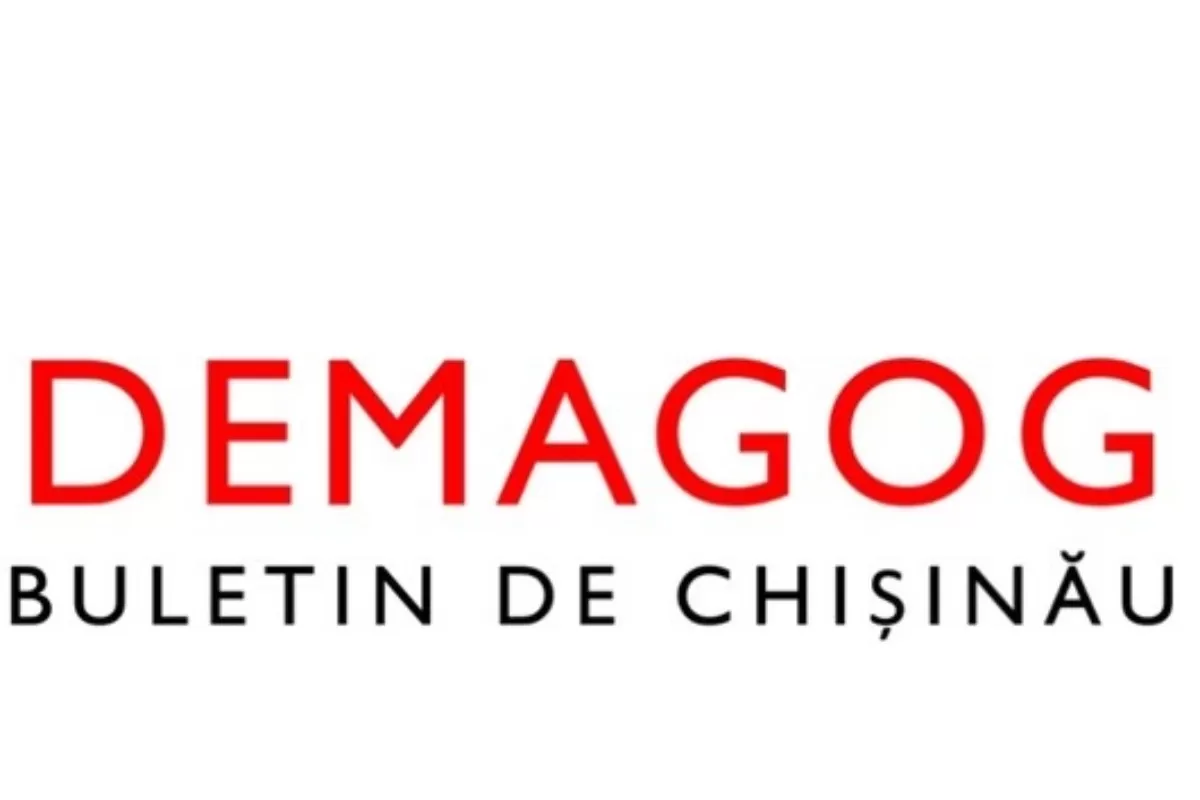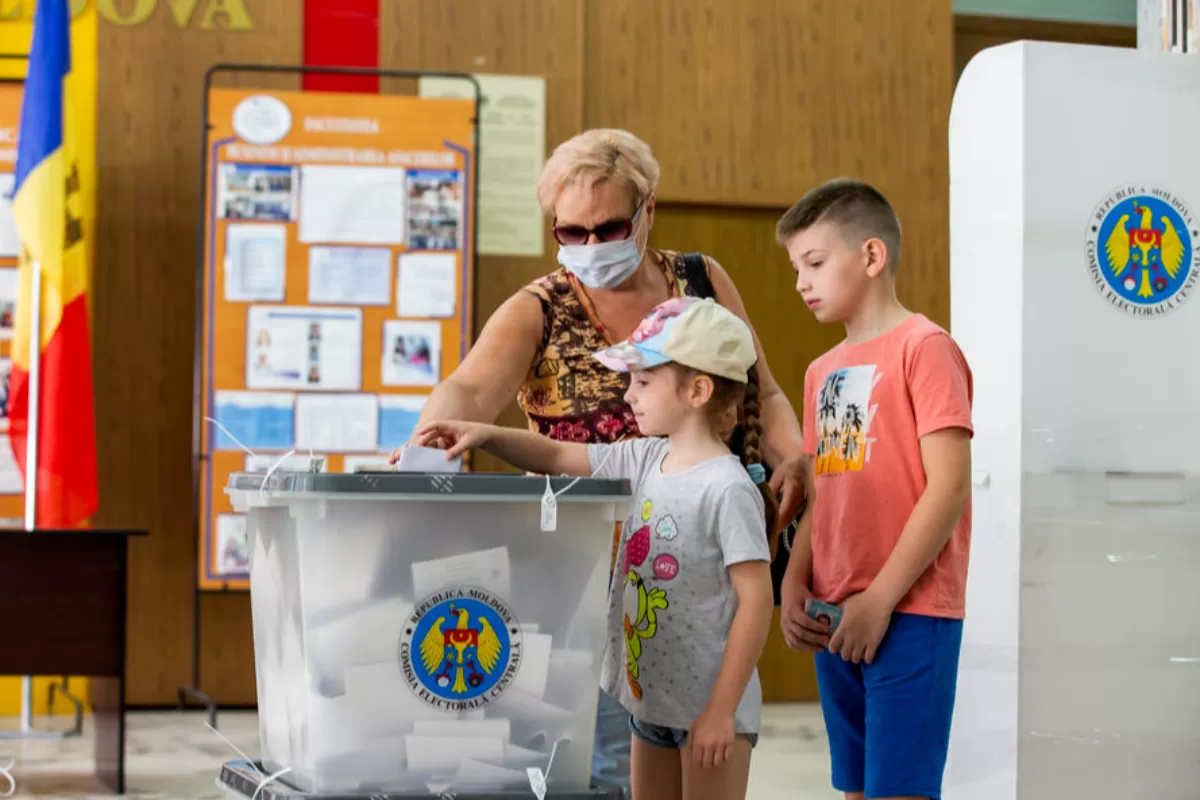
Russian secret intelligence had allegedly prepared a set of actions – mostly manipulation, provocative actions, disinformation and propaganda – in order to influence the presidential election in the Republic of Moldova. The information was carried by the German daily Bild (although it had been previously publicized in Chișinău as well), which writes that Moscow might be applying the same tactics for the election in the Bundestag in the upcoming autumn. Therefore, Moldova was supposed to be a testing field. In 2020, the plan didn’t go through, but Veridica has discovered some of its elements apparently being employed in the campaign for the parliamentary election of July 11. Of course, we cannot rule out the possibility this is all just coincidence. However, these “coincidental” actions add splashes of color to an election race where one newly-founded party launched its candidacy symbolically with one woman rising from a coffin. No, it’s not the Vampires’ Party, in case you were wondering, but one of the makeshift parties that enrolled in the campaign with no real chances of ever meeting the electoral threshold, but which can, however, stir public opinion, harass larger parties, come up with all sorts of outlandish proposals and ideas and confuse voters. Basically, these parties are the equivalent of online trolls. Crude public performance is not specific to makeshift parties alone, as it can also be noticed in better faring parties. They use their media exposure to manipulate, disinform and badmouth their political opponents, thus contributing to the flow of fake news on the market. The Bloc of Communists and Socialists and AUR seem to thrive on such campaigns, which are also fueled by Kremlin-linked media. Their favorite target remains president Maia Sandu, which is (rightfully) seen as the driving force of PAS, a party that may very well secure majority in Parliament. This week, for instance, Veridica has debunked fake news about manipulating statistics in favor of Maia Sandu, her alleged links with fugitive oligarchs and her unrestricted use of the Intelligence and Security Service. All this while, we are told that non-governmental organizations (which Maia Sandu and PAS obviously work for) are on the brink of destroying the country, while the current “regime” – another reference to Maia Sandu, despite the fact that the president’s prerogatives are rather limited, and the country continues to be run by the Socialists and their allies – is ready to apply for NATO accession.
The non-governmental organizations funded from the West are directly involved in the election campaign in the Republic of Moldova, according to an article published by Rubaltic.ru, which largely takes over the theories used in the presidential campaign by the Socialist Bogdan Țîrdea. The attack on civil society is in fact targeting the Action and Solidarity Party, the Socialists' main contender in the early parliamentary elections of 11 July.
The “regime” in Chisinau wants to have the Republic of Moldova join NATO and is ready to make “unfriendly” gestures towards Russia, according to a false narrative promoted by Sputnik. The starting point of the narrative was the participation of a single Moldovan army platoon in a multi-national exercise to which, in the past, Russia would also be invited.
Maia Sandu wants to eliminate electoral competition in favor of the Action and Solidarity Party (PAS), which she led before becoming president, according to a false narrative promoted by AUR and the pro-Russian forces in Chisinau. The promoters of the narrative knowingly ignore the political and administrative realities of the Republic of Moldova, in an attempt to undermine the party that stands as favorite in the polls.
Maia Sandu does not have any important achievements in the fight against corruption during the first 6 months of her term because, in fact, she does not want to fight the phenomenon. This false narrative is promoted by the Kremlin channel, Sputnik, which in the context of the election campaign in the Republic of Moldova tries to undermine the anti-corruption discourse and manipulates information by ignoring the principle of separation of powers.
Statistics on the number of Coronavirus infections are manipulated to serve the political interests of Maia Sandu, according to the Socialist MP Bogdan Țîrdea, one of the most active promoters of false narratives in Moldova. The statistics narrative is false too, and, just like the previous ones, has been amplified by several publications.
23 candidates are participating in the campaign for July 11th parliamentary elections, fighting for the 101 seats in the Chisinau Parliament. The problems facing the Republic of Moldova, such as poverty, corruption and the oscillation between East and West, are also reflected in the electoral messages used by the competing parties, and the central themes of the election campaign are the geopolitical vector of the Republic of Moldova and the fight against corruption.
Russia allegedly had a plan to influence the 2020 presidential elections in Moldova, but abandoned it when it came to light. An analysis of the current campaign suggests, though, that at least in part, ideas devised by the Russian secret services are still being put into practice.
Demagog 2021 is the Veridica project for monitoring the election campaign for the early legislative elections in the Republic of Moldova. The Chisinau Bulletin is a weekly synthesis of the main fake news, disinformation and narratives used in the campaign, but also of the editorials and analyzes written by our team.

Disinformation uses a variety of manipulation tactics. Disinformation stories can easily be created by combining provocative topics.
Report
Not even the most optimistic supporters of the Action and Solidarity Party (PAS) were expecting a landslide victory in the early parliamentary election. PAS didn’t just face left-wing parties, represented by the Electoral Bloc of Communists and Socialists, but Russia itself, which tried to lend the latter a helping hand. Yet its victory is only the beginning: the real challenge for PAS lies ahead.

FAKE NEWS: The right-wing bought votes in the Diaspora
The alleged election fraud, including bribe-giving, was one of the hot topics in the Republic of Moldova on election day. While media outlets siding with pro-European parties revealed alleged cases of bribe reported on the left bank of the Dniester, the pro-Socialist press focused on offenses reported abroad. One the main “arguments” about influencing voters in the Diaspora was a short video filmed by a young girl queuing outside a polling station in Frankfurt, Germany. In the background one can hear a few people talking and laughing, mentioning 50 Euro. A large number of press institutions affiliated to the Socialists carried the piece of news, suggesting the video is evidence that voters got bribed. The person who shot the video subsequently said it was all a joke, and that the media made erroneous assumptions.

DEMAGOG 2021. The Chisinau Report, No. 5: Radio Yerevan
disinformation, manipulative stories and fake news continued to flood the media as usual. Maia Sandu, PAS and the West were again the favorite targets of disinformation and fake narratives. Fake news authors were pretty much unimaginative, as they have been over the course of the entire campaign, resorting to narratives they used before, both in the current campaign, as well as in previous ones: a victory for the right-wing would spell disaster for the country